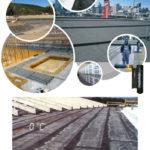Indian Automotive Sensors Market is expected to reach US$ XX Bn by 2026 at a CAGR of 14% over the period 2019-2026.
The report includes the analysis of impact of COVID-19 lock-down on the revenue of market leaders, followers, and disrupters. Since lock down was implemented differently in different regions and countries, impact of same is also different by regions and segments. The report has covered the current short term and long term impact on the market, same will help decision makers to prepare the outline for short term and long term strategies for companies by region.
India Automotive Sensors Market
The growing the per capita income is driving the demand for premium and luxury vehicles, which in turn is driving the automotive market. The y-to-y automotive sales growth rate was XX% for the financial year 2017-18
In National Electric Mobility Mission 2020, the Indian government has formulated a scheme for faster adoption and manufacturing of electric and hybrid vehicles in India. Electric and hybrid vehicles have an extensive range of vehicle sensors in various applications of ranging from powertrain & chassis, body electronics, safety, and security, etc. Thereby, the growth of electric vehicles would significantly help to augment the growth of the Indian automotive sensors market. However, the heavy cost associated with these sensors would pose a threat in the adoption of these systems and is one of the growth restraints for the Indian automotive sensors market.
The recovery of economy after demonetization and GST implementation, impressive growth rate of 7.2% during the final quarter of 2017-18 financial year, infrastructure development and streamlining of the logistics and e-commerce sectors, migration to BS IV emission standards, boost to the medium and heavy commercial vehicles due to restrictions on truck overloading are some other driving factors for the Indian automotive sensor market.
The year 2017-18 witnessed the highest sales and production in the utility vehicle and passenger car segments.
Indian Automotive Sensors Market
Indian automotive sensors market is segmented on the basis of type, vehicle type, application. The pressure and MEMS sectors are expected to be the major segments pioneering the growth of the Indian automotive sensors market in the forecast period. In application, sensors used in the powertrain (especially in engine and chassis) would significantly grow to remain the largest contributor in the automotive sensor market. However, sensors used in the alternative fuel vehicle would grow at the highest rate due to the growing adoption of electric and hybrid vehicles in the forecast period.
The OEMs operating in the Indian market are looking forward to differentiating the vehicles by incorporating several new features based on sensors. Continental, which is one of the leading automotive sensor manufacturers, has developed a comprehensive series of advanced automotive sensors to increase vehicle automation and improve various functional efficacies of the vehicle.
One such advancement is the Intelligent Battery Sensor, which continuously analyses the status of conventional 12-Volt lead-acid batteries and provides information on key parameters such as the state-of-charge, state-of-function (power ability) and state-of-health (aging) of the battery. The battery sensor could be deployed to any standard battery system.
The objective of the report is to present a comprehensive analysis of the Indian Automotive Sensors Market including all the stakeholders of the industry. The past and current status of the industry with forecasted market size and trends are presented in the report with the analysis of complicated data in simple language. The report covers all the aspects of the industry with a dedicated study of key players that includes market leaders, followers and new entrants. PORTER, SVOR, PESTEL analysis with the potential impact of micro-economic factors in the market have been presented in the report. External as well as internal factors that are supposed to affect the business positively or negatively have been analyzed, which will give a clear futuristic view of the industry to the decision-makers. The report also helps in understanding Indian Automotive Sensors Market dynamics, structure by analyzing the market segments and project the Indian Automotive Sensors Market size. Clear representation of competitive analysis of key players by End-User Industry, price, financial position, Product portfolio, growth strategies, and regional presence in the Indian Automotive Sensors Market make the report investor’s guide.
The scope of the Indian Automotive Sensors Market report
India Automotive Sensors Market, by Type
• Pressure Sensor
• Temperature Sensor
• Speed Sensor
• Position Sensor
• Inertial Sensor
• Image Sensor
• Others
India Automotive Sensors Market, by Vehicle Type
• Passenger vehicles
• Commercial Vehicles
• Electric Vehicles
• Two-Wheelers
India Automotive Sensors Market, by Application
• Powertrain
• Chassis
• Exhaust
• Safety & Control
• Body Electronics
• Telematics
• Others
Key Players, Indian Automotive Sensors Market
Denso Corporation
Infineon Technologies
Bosch
Texas Instruments
Sensata Technologies
Delphi Automotive
CTS Corporation
Maxim Integrated
Freescale
Analog Devices
GE
Continental Automotive
Aleph Automotive Sensors
HITACHI Automotive Systems Americas
Hamlin Electronics
Sensors India
SN Technology
Santech Enterprises
For More Information Visit @: Maximize Market Research Company
This Report Is Submitted By : Maximize Market Research Company
Customization of the report:
Maximize Market Research provides free personalized of reports as per your demand. This report can be personalized to meet your requirements. Get in touch with us and our sales team will guarantee provide you to get a report that suits your necessities.
About Maximize Market Research:
Maximize Market Research provides B2B and B2C research on 20,000 high growth emerging opportunities & technologies as well as threats to the companies across the Healthcare, Pharmaceuticals, Electronics & Communications, Internet of Things, Food and Beverages, Aerospace and Defense and other manufacturing sectors.



0 Comments